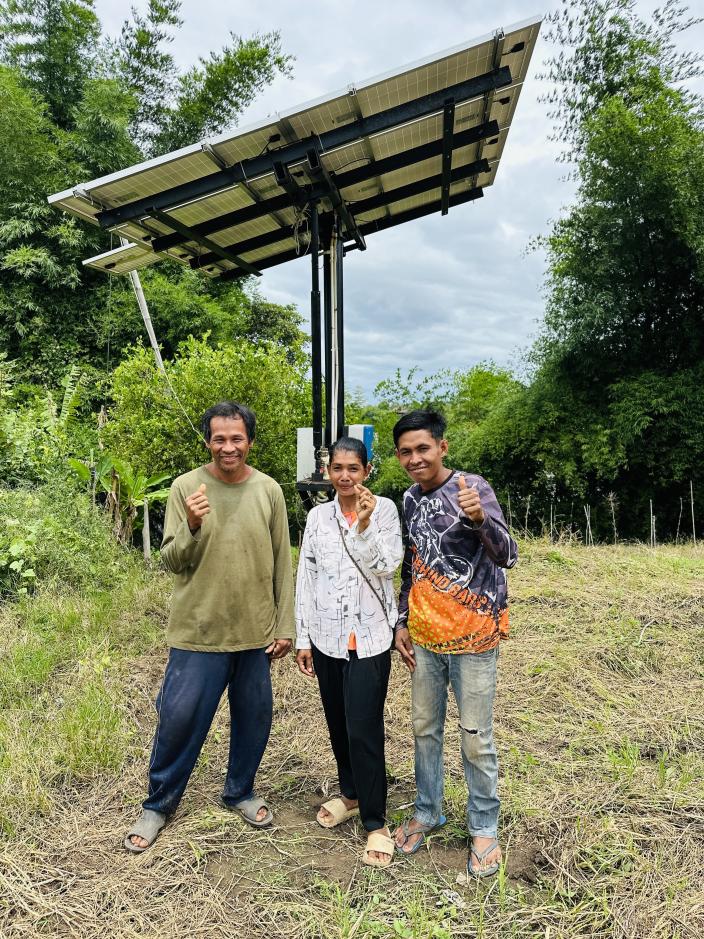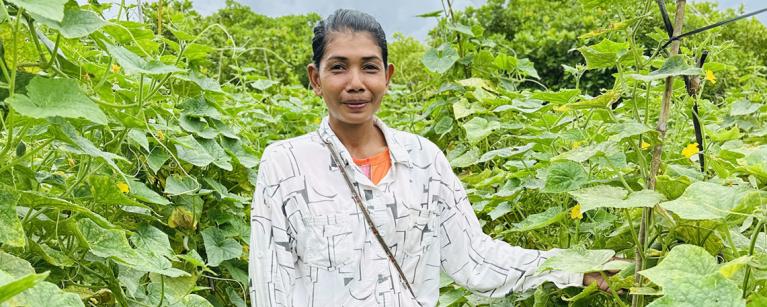Further downstream, nestled along the Srepok River, Seda commune, Lumphat district, Kaeng Sann village sits about 60 kilometers from Ratanakiri’s provincial town. Life here hasn’t always been easy, particularly for smallholder farmers like 38-year-old Theary Chuon and her husband, who have long relied on traditional farming to support their family of four, including two school-age children.
Just next door, 33-year-old Lot Pov juggled caregiving for two children and an aging mother while managing her modest plot of land. Both families had long struggled with poor crop yields—a challenge made worse by the shifting seasons and increasingly unpredictable weather brought on by climate change.
In October 2023, through Oxfam’s Strengthening Climate Resilience in the Mekong Subregion project—part of Oxfam’s Mekong Water Governance Program and implemented by the 3S Rivers Protection Network—Theary and Lot were selected as model farmers for their commitment and openness to innovation. With support from the project, they received hands-on training in climate-smart agriculture techniques, including composting, drip irrigation, recordkeeping, and the use of solar-powered water systems.
As part of the initiative, the project provided a movable solar water pump, valued at $2,300, along with a water-saving drip irrigation system. After receiving their first batch of seeds, the two families quickly got to work. Today, their flourishing gardens produce vibrant harvests of cucumbers, string beans, chilies, eggplants, and morning glory grown from seeds they sourced on their own.
This transformation hasn’t just nourished their crops—it has fortified their livelihoods. Each farmer now earns an average of 2 million Riels (around $500) per month by wholesaling vegetables at the local commune market. Their stable income covers daily household expenses and provides financial breathing room for emergencies.
For Theary, the impact goes beyond economics.
“Before, I couldn’t afford to send my elder daughter to school regularly. Now, I can support both of my children’s education—including $20 a week for my daughter’s dormitory expenses.”
Empowered by their progress, both Theary and Lot are now sharing their knowledge and experiences with other farmers, sowing the seeds of resilience throughout their community.
Their story is a testament that climate-smart agriculture is more than adaptation strategy—it’s a pathway to lasting opportunity, stability and hope for the next generation.

Theary and Lot (far right) in front of the movable solar-powered water pump. Photo: Soknak/Oxfam
